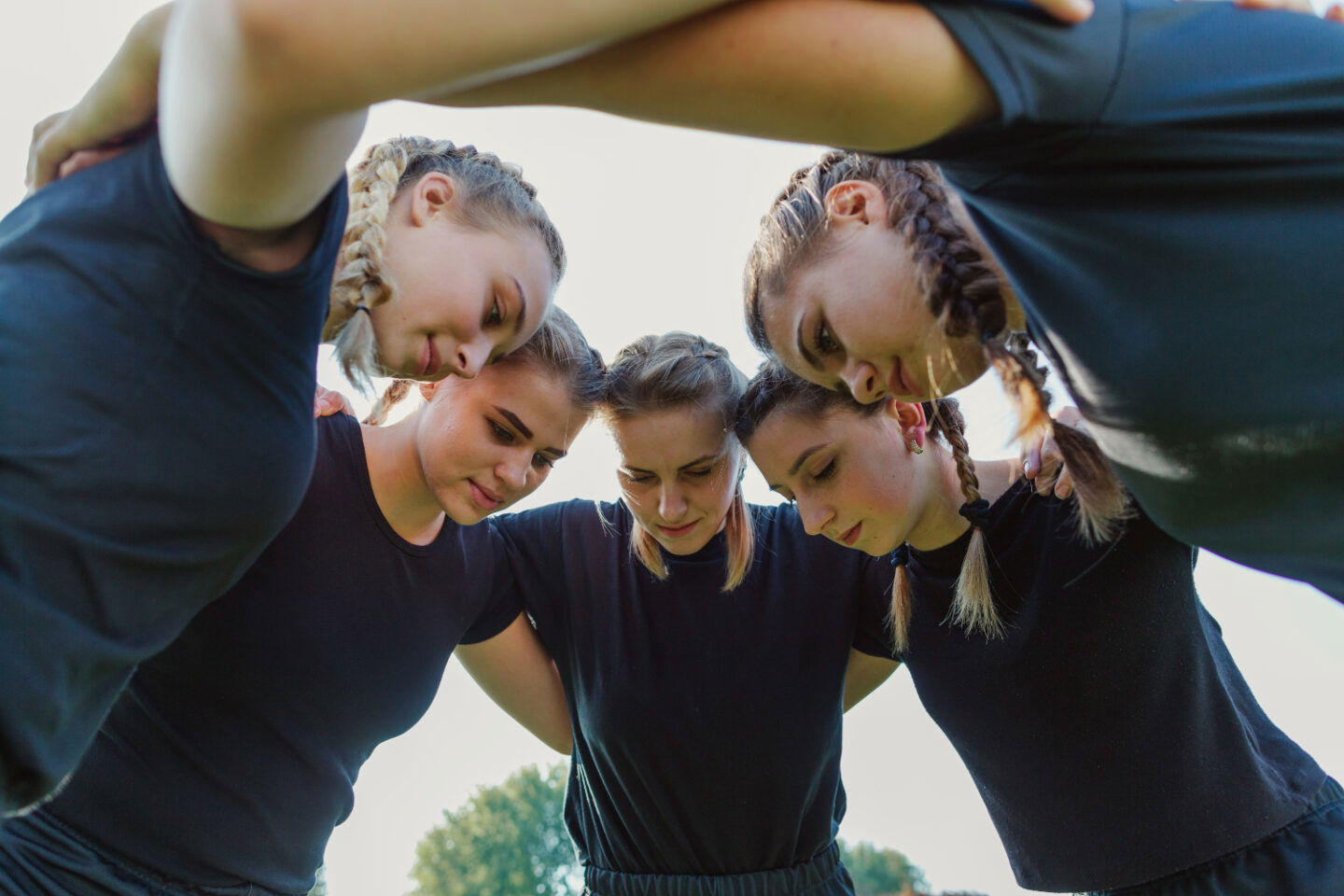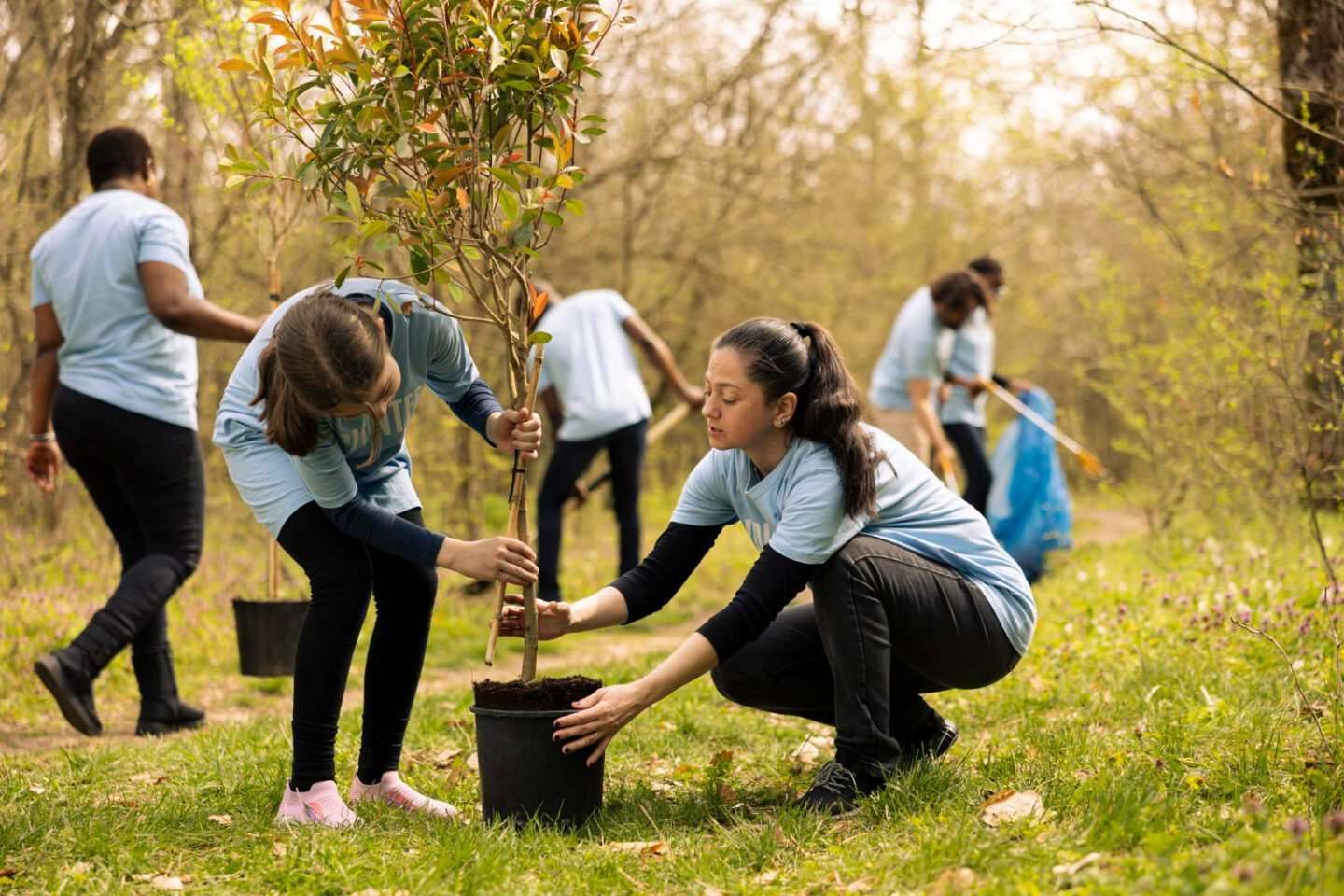What is IB CAS (Creativity, Action, Service)?

The International Baccalaureate Diploma Programme is a highly sought-after course of study. What sets it apart from other pre-university qualifications is education beyond textbooks and assessments. One of the elements of its unique approach is CAS – Creativity, Activity, Service – an experimental learning opportunity that boosts academic performance through personal growth, social engagement, and physical development.
In this article, we’ll look closely at CAS as well as explain its goals and benefits.
What is CAS in the IB Programme?
As an IBDP student, you will learn six academic subjects. However, to earn your diploma, it is not enough to do well on your exams. You will also have to complete three core elements:
All of these components are designed to challenge students to think critically and explore the world outside of traditional academic constraints.
When it comes specifically to CAS, it is built upon the philosophy of holistic education. In other words, its purpose is to nurture not only academically proficient but also personally and socially aware individuals. It encourages students to:
- Develop personal and interpersonal skills;
- Show initiative and perseverance;
- Learn through real-world experiences;
- Collaborate with others;
- Solve problems creatively;
- Make meaningful decisions.
To some extent, CAS is a counterweight to the intense academic demands of the IB Diploma Programme. While your academic subjects boost your intellectual capabilities, CAS pushes you to explore your potential in other crucial areas.
Creativity
As a part of CAS, the main purpose of Creativity is the promotion of an innovative mindset. Students involved in Creative projects not only develop their artistic skills, but also learn to approach problems with imagination, originality, and fresh perspectives.
The CAS guide suggests the following types of Creativity:
1. Ongoing Creativity is a continuous creative exploration. This type of creativity involves long-term projects or consistent creative engagement that evolves over time. For instance:
- Maintaining a year-long photography project documenting your community;
- Creating a series of podcasts;
- Putting together a digital art portfolio with regular additions.
2. School-Based Creativity focuses on creative initiatives within the educational environment. These activities utilise the resources and opportunities provided by your school. Examples include:
- Creating educational content for school magazines or websites;
- Acting in school theatrical productions or supporting such performances behind the scenes;
- Organising creative workshops for fellow students.
3. Community-Based Creativity implies that students use their artistic skills to benefit and engage with the broader community. This type of creativity connects personal ingenious expression with social impact. Potential activities might include:
- Developing art workshops for children in local community centres;
- Creating promotional materials for local nonprofit organisations;
- Designing public art installations that address community issues;
- Producing video documentaries about local social challenges.
4. Individual Creativity is about personal exploration and self-expression. It allows students to develop their unique talents and interests, for example:
- Learning a new musical instrument;
- Writing and publishing original poetry or stories;
- Creating digital art or graphic design projects;
- Developing photography or videography skills;
- Exploring new crafting or design techniques.
Activity
The Activity component of CAS is designed to promote a healthy lifestyle as well as physical and mental wellness. Although the primary focus here is physical skills and fitness, students also learn to collaborate in a team, set goals, and work hard to achieve them.

Ultimately, this strand helps students understand that physical well-being is not a sheer athletic performance, but rather a balanced and healthy lifestyle. Along with this, it positively affects studying since it improves concentration and contributes to stress reduction.
According to the CAS guide, students may engage in these types of Activities:
1. Ongoing Activity represents long-term physical engagement and continuous improvement. This can be a commitment to a certain sports discipline (including those you started before the IBDP) or setting long-term personal fitness goals. Examples of such activities include:
- Maintaining a year-long training program for a specific sport;
- Following a consistent fitness regimen;
- Participating in a sports team across multiple seasons.
2. School-Based activities are those that are organised, supported, or promoted by your school, such as:
- Participating in school sports teams;
- Joining inter-school athletic competitions;
- Engaging in school-organised fitness programs;
- Taking part in physical education enrichment activities.
3. Community-Based Activity involve fitness and well-being events or projects within the local community. These activities involve:
- Participating in local sports leagues;
- Joining community fitness classes;
- Supporting community sports events;
- Organising fitness challenges for local groups;
- Participating in charity sports events or marathons.
4. Individual Activities encourage students to pursue personal fitness goals, desirably over an extended period of time. Such activities typically represent self-motivated physical challenges or exploration of individual sports or fitness disciplines. The specific examples include:
- Learning a new martial art;
- Developing a personal yoga or Pilates practice;
- Training for a personal fitness goal;
- Exploring rock climbing, swimming, cycling, etc.
Service
The purpose of this CAS experience is to transform students from passive observers into active and compassionate members of society. In particular, the Service component challenges them to connect their personal experiences with the broader world around them to create a positive change.

Through volunteering and meaningful engagement, they have a chance to contribute to community well-being. At the same time, they learn to solve problems, develop their leadership and organisational skills, and nurture social responsibility.
Book free trial with our certified IB teachers today
100 % of tutors are certified teachers and examiners
The CAS guide suggests these types of Service activities:
1. Direct Service, which involves hands-on, face-to-face interaction with individuals or communities. Students directly contribute their time and skills to address their needs. For example, they can:
· Tutor younger students;
- Assist at local animal shelters;
- Help at retirement homes;
- Provide care for children with special needs.
2. Indirect Services bring positive change without direct personal interaction. Rather, it is behind-the-scenes work, such as:
- Organising fundraising events;
- Developing awareness campaigns;
- Supporting nonprofit organisations;
- Producing materials for community groups.
3. Advocacy is speaking up for causes and raising awareness about important social issues. In other words, students learn to use their voices to create positive change. Examples of advocacy include:
- Creating campaigns about environmental issues;
- Raising awareness about social injustices;
- Supporting human rights initiatives;
- Promoting mental health awareness.
4. Research-Based Service is basically a combination of academic inquiry with social involvement. The knowledge obtained through community work can be used, for example, to support your Extended Essay or Internal Assessment. Examples of such service types are the following:
- Investigations into local environmental concerns;
- Water quality studies;
- Community health issue research;
- Suggest solutions to local problems.
Goals of the CAS Program
The IB Diploma Programme is known for its academic rigour. However, universities (and eventually employers) value students who can balance their studies with extracurricular experiences. CAS’s goal is to promote such experiences and add a fun dimension to students’ schedules.
The beauty of CAS is its flexibility. Students have the freedom to choose activities that resonate with them personally (such as hobbies or creative explorations) and benefit others (i.e. community service or helping other students). The result of such activities is versatile individuals who are not just academically proficient but also socially engaged and personally fulfilled.
Developing Personal and Interpersonal Skills
CAS experiences encourage students to step out of their comfort zones and take on new challenges. As they try their hands at something new, they open themselves for personal growth as well as increase their self-confidence and resilience. Apart from this, they learn to embrace new challenges, find creative solutions, think outside of the box, and adapt to changing circumstances.
Alongside personal experiences, students are often involved in collaborative projects. As a result, they can improve their teamwork and communication skills, and gain the ability to appreciate other perspectives.
Ultimately, this personal and interpersonal development is essential for success in their academic pursuits as well as future personal and professional endeavours.
Promoting Ethical Responsibility
CAS experiences provide students with an opportunity to reflect on the consequences of their choices and actions. Ethical decision-making is an integral part of almost any CAS activity, whether it’s a sports competition, artistic performance, or relationships with other participants of service projects.
Encouraging Balance
The IB Organisation recognises that a student’s life is not solely about academic achievements. There must be room for creativity, a healthy lifestyle, and meaningful activities on their to-do lists. Students who successfully balance their academic pursuits with these undertakings tend to navigate the IB Diploma Programme more smoothly. That’s because they help avoid burnout and provide outlets for stress.
Moreover, these activities can serve as a source of inspiration for their academic work. For example, a student involved in a community service project cleaning up a riverbank might be inspired to write an Internal Assessment (IA) on the topic of erosion for their Environmental Systems and Societies course.
Last but not least, many universities, particularly in the United States, value well-rounded individuals who demonstrate interests and passions outside the classroom.
Benefits of Participating in CAS
CAS experiences are what can make your student life truly memorable. However, you can reap its benefits long after you leave your alma mater. Here is how this core IB element can help you succeed in your future academic and career pursuits.
Holistic Development
As we have already mentioned, the Diploma Programme aims to develop students not just intellectually, but also physically, socially, and emotionally. CAS plays a tremendous role in this holistic approach as it allows combining studies with experiential educational experiences.
Thanks to CAS, students have the motivation to step outside the familiar boundaries of classroom learning. It is a chance to explore their capabilities, passions, and talents, as well as make a difference in the world.
Such an approach reshapes how students perceive education. Instead of being a passive process of receiving information, it becomes a journey of personal growth and community contribution.
Enhanced University Applications
Oftentimes, grades are not a single determining factor in university admissions. Higher education institutions are increasingly seeking candidates who demonstrate potential outside of traditional academic metrics.
CAS may help meet these expectations. Your diverse experiences, leadership initiatives, community engagements, etc. are evidence of your ability to succeed in both academic and social environments. Eventually, they are an opportunity to distinguish yourself from other applicants with similar academic profiles.
Life Skills and Experiences
Perhaps the most significant benefit of CAS is its ability to enhance transferable life skills. For example, thanks to service projects, students learn to collaborate, communicate effectively, and solve problems creatively. Artistic pursuits, on the other hand, contribute to critical thinking and self-expression. Finally, physical activities help promote teamwork, discipline, and healthy habits.
All these skills are invaluable for both academic and professional success. Moreover, they will come in handy for life management and personal growth.
Conclusion
CAS activities are exciting additions to your study programme. Still, you might find it difficult to effectively combine your academic endeavours and CAS experiences. If you’re lacking balance or struggling to catch up with the demands of the IBDP, you’re not alone.
Many students find themselves stretched thin, trying to excel in their studies while also engaging in CAS activities. At TutorsPlus, we understand the unique challenges of the IB Diploma Programme. Our experienced IB tutors are passionate about supporting students like you in becoming efficient and multifaceted individuals. Since our tutoring service is based on the assessment of your individual strengths and challenges, we are able to offer tailored strategies that integrate your studies with other important commitments.
Are you ready to make the most of your IB Diploma Programme and become the most accomplished version of yourself? Then contact us at 022 731 8148 or and take one more step towards a balanced, successful, and enriching IB journey.
By Sara Lloyd
Sara has been an education consultant for TutorsPlus for 15 years, and is an expert on international IB education. She is also a parent of two lively children.















